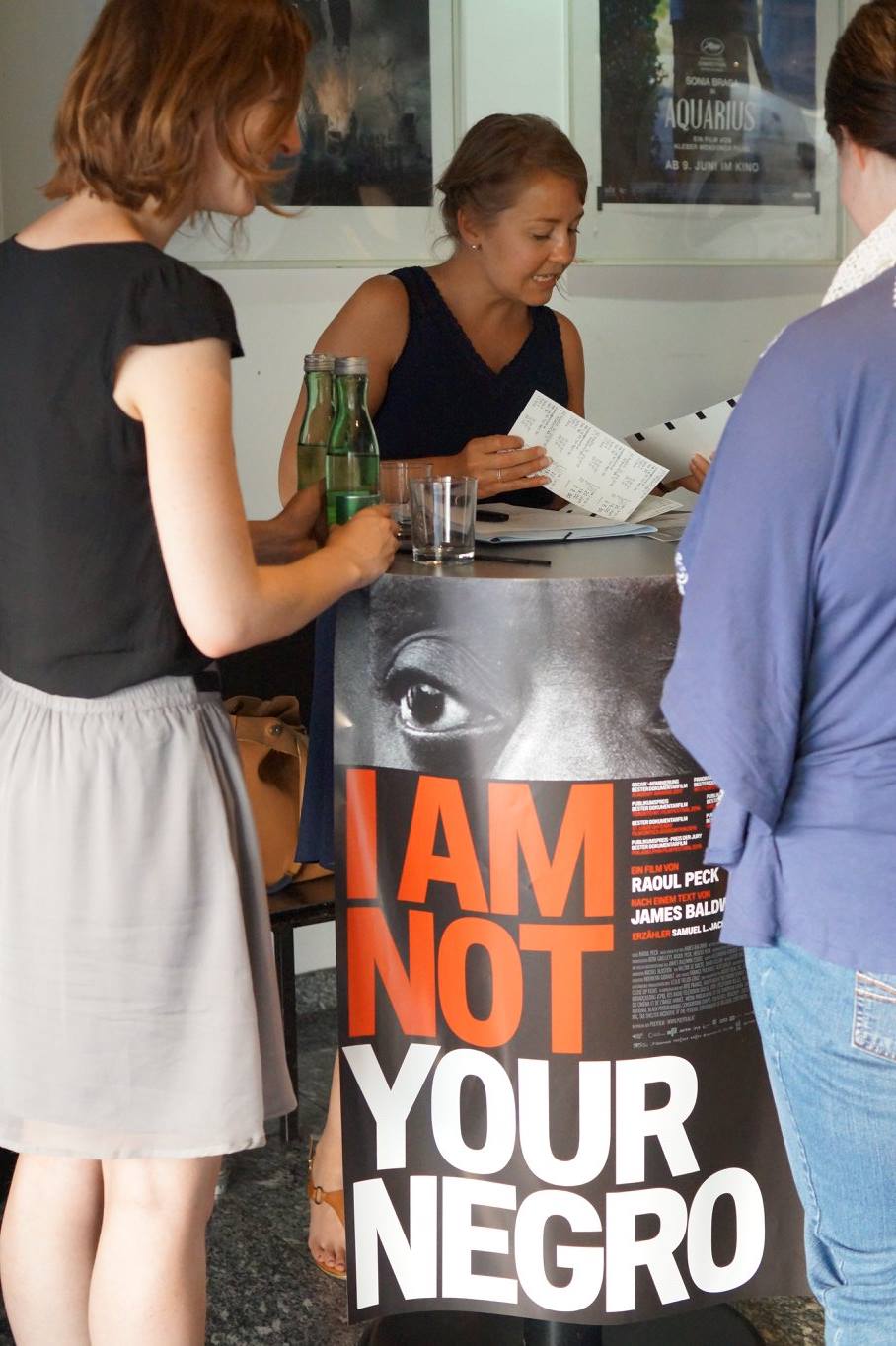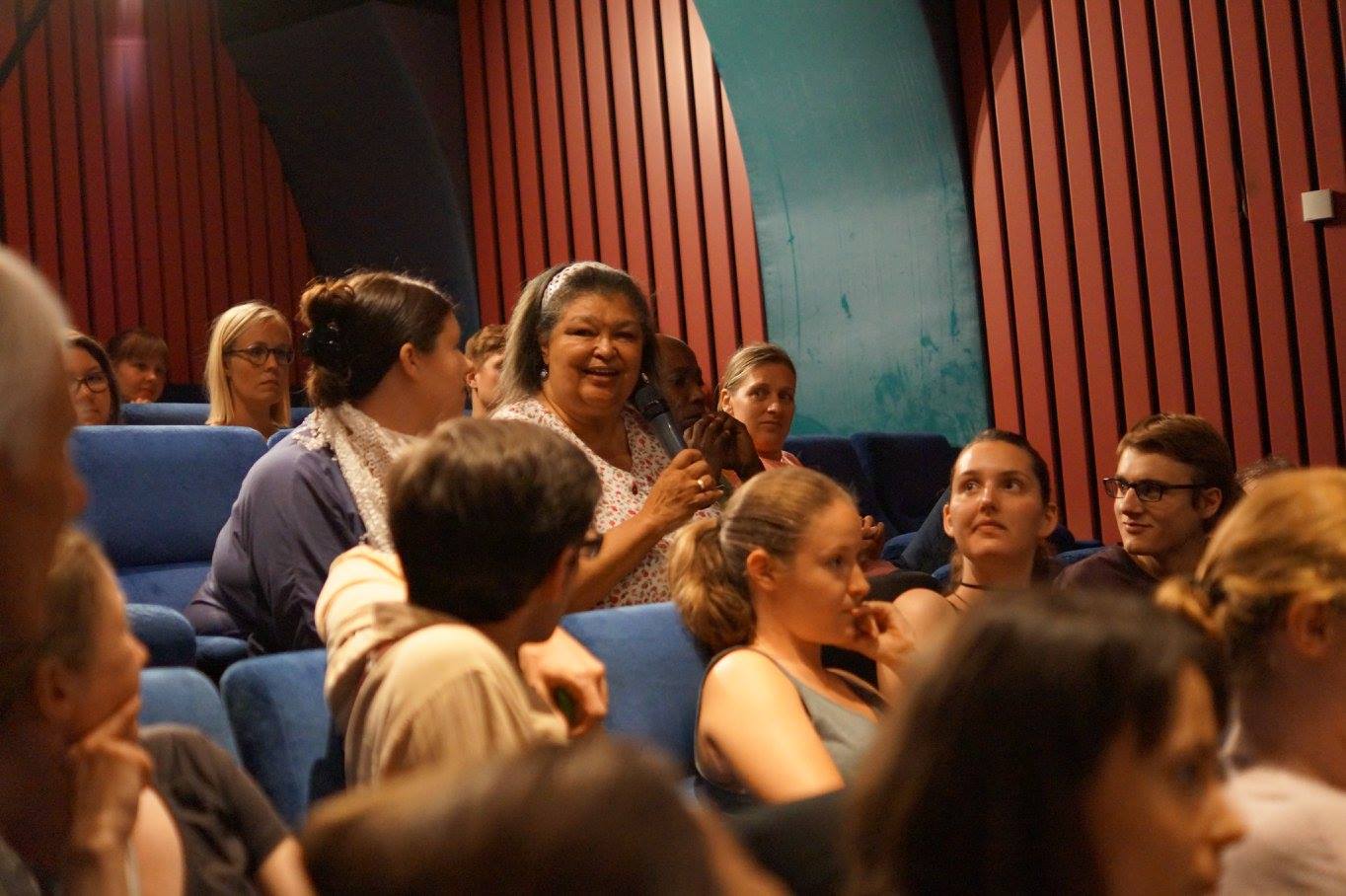On the evening of June, 20th, 2017, the American Studies department hosted a film screening of Raoul Peck’s documentary I Am Not Your Negro at the KIZ Royalkino in Graz. The screening was followed by a discussion/conversation led by Ewa Adamkiewicz and Katharina Fackler. With the support of the Alumni Uni Graz Sektion English and American Studies, the Antidiskriminierungsstelle Steiermark, and the Österreichisch-Amerikanische Gesellschaft, American Studies Graz was able to provide 40 free tickets for students. More than 60 people participated in this public event, including a large audience not affiliated with the university, which allowed for fruitful conversations.
Bringing critical cultural studies to a public space, Ewa Adamkiewicz and Katharina Fackler opened the discussion by putting forward two statements, each contextualizing the documentary and James Baldwin. The documentary I Am Not Your Negro draws on written text pieces by author James Baldwin—a book project titled Remember this House that Baldwin did not manage to finish before his death in 1987. As Baldwin’s words are brought to life by the voice of Samuel L. Jackson, the film is not merely about Baldwin, but also by Baldwin. It centers his perspectives on what has been called the "race issue" of the United States and his relationships with Medgar Evers, Martin Luther King, Jr., and Malcolm X. The audience is confronted with the brilliant interweaving of video footage from different historical eras, such as the 1960s, as well as from current Black Lives Matter protests in the United States. Thereby the documentary functions as “a journey into black history that connects the past of the Civil Rights movement to the present of #BlackLivesMatter” ("I Am Not Your Negro," http://www.iamnotyournegrofilm.com/synopsis). The images of protests in Ferguson from November 2015 are put in dialogue with images of how state troopers in Selma, Alabama, brutally clash with peaceful civil rights protesters near Edmund-Pettus Bridge in 1965. By putting these images into conversation, I Am Not Your Negro emphasizes the striking historical patterns and parallels that continue to perpetuate systemic racism in the present day. Baldwin’s fierce analyses and writings are thus as relevant today as they were in the time of their production in the mid twentieth century.
Text: Ewa Adamkiewicz



